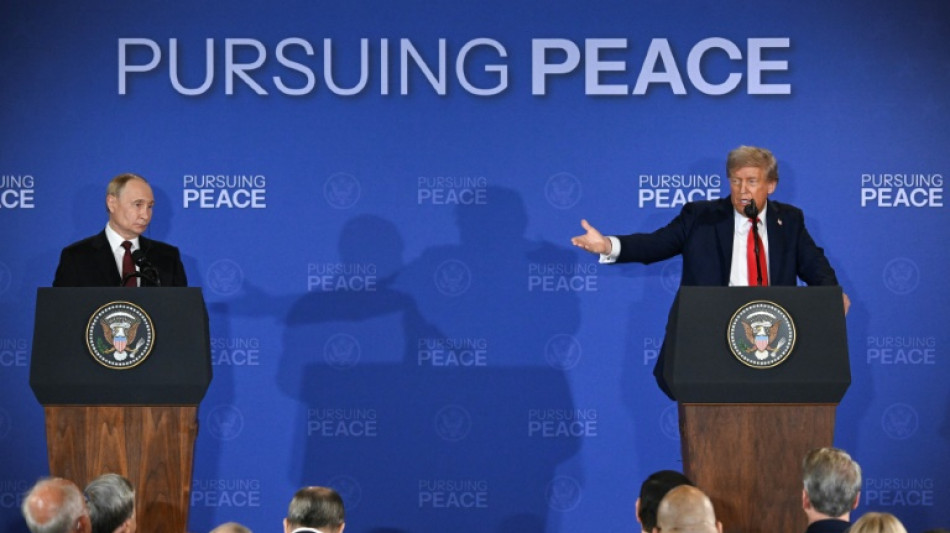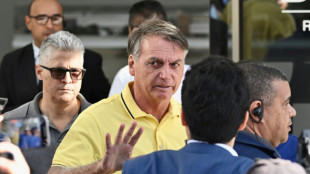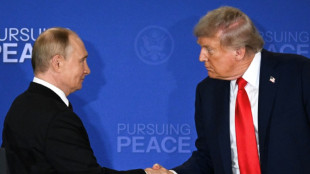
Europeans try to stay on the board after Ukraine summit

For European leaders, the absence of a Ukraine deal at the summit between Russian leader Vladimir Putin and US President Donald Trump has at least one upside: They have not yet been completely sidelined in a key strategic moment for the Continent's future.
"It's good news that there was no deal, for both Ukraine and the Europeans," said Alberto Alemanno, a European law professor at the HEC university in Paris.
He noted a serious risk that "a new European security map" would be drawn up while Ukraine's President Volodymyr Zelensky and Europe's leaders watched from the sidelines.
Europe found itself shut out of the summit in Alaska, and tried to weigh in ahead of the meeting with a flurry of calls and urgent meetings between leaders ahead of time.
On Saturday, the French presidency said the leaders of Britain, France and Germany would host a video call Sunday for their so-called "coalition of the willing" to discuss steps towards peace in Ukraine.
The meeting would come a day before Zelensky travels to Washington for talks with Trump -- five months after the Ukrainian leader was ambushed with a televised scolding during his previous Oval Office visit.
European leaders also proposed a three-way summit between Zelensky, Putin and Trump.
But it remains unlikely that Russia, hit by 18 rounds of European sanctions since it invaded Ukraine in February 2022, is ready for any thaw in its glacial relations with the bloc.
- 'Keep Europeans out' -
Putin made his stance clear on Friday, warning Ukraine and European countries to "not create any obstacles" and not "make attempts to disrupt this emerging progress through provocation or behind-the-scenes intrigues".
"Clearly, what Vladimir Putin's intention is, is to keep Europeans out and Americans in," said James Nixey, a specialist in Russian foreign policy.
After a debriefing with Trump and with Zelensky on Saturday, European leaders held their own video call on their next steps.
Moscow "cannot have a veto" on Ukraine joining the European Union or NATO, they said in a statement signed by French President Emmanuel Macron, German Chancellor Friedrich Merz, UK Prime Minister Keir Starmer and European Commission president Ursula von der Leyen.
Macron later called for increased pressure on Russia until "a solid and durable peace" had been achieved.
But since the beginning of the war, European leaders "have never engaged with Putin", said Alemanno.
"And all of a sudden they have to do so, without knowing exactly what are the terms of engagement," he said. "So they're a bit stuck."
The risk is all the greater since Trump has clearly indicated in recent weeks that he is ready to walk away from the war, despite his campaign promise to end it within "24 hours".
"Each morning when I wake up, my first thought is that we have to re-arm ourselves even faster," Danish Prime Minister Mette Frederiksen told the Jyllands-Posten newspaper on Saturday.
W.Richard--SMC


 London
London

 Manchester
Manchester
 Glasgow
Glasgow
 Dublin
Dublin
 Belfast
Belfast
 Washington
Washington
 Denver
Denver
 Atlanta
Atlanta
 Dallas
Dallas
 Houston Texas
Houston Texas
 New Orleans
New Orleans
 El Paso
El Paso
 Phoenix
Phoenix
 Los Angeles
Los Angeles

